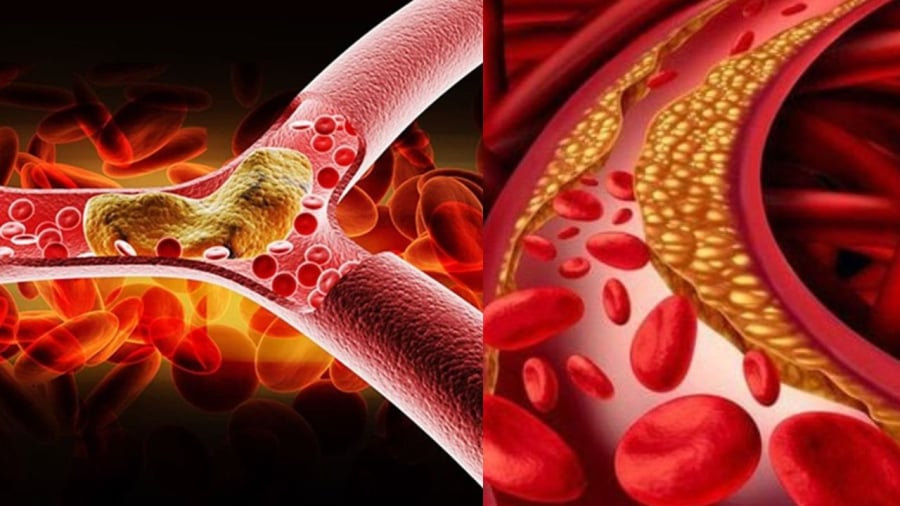High cholesterol, or high blood fat, is a modern health issue that has been increasingly highlighted in recent times. With advancements in society, we no longer face shortages of food or clothing, but the prevalence of obesity and overweight individuals continues to rise, leading to an increased focus on high cholesterol.
While it is commonly believed that obesity and high cholesterol go hand in hand, thin individuals are not exempt from this health concern, according to experts. Those who are underweight may also face cholesterol issues if they lead an unhealthy lifestyle, such as smoking or consuming excessive alcohol.
Being underweight doesn’t exempt you from high cholesterol issues.
High cholesterol is a result of lipid metabolic disorders. Our bodies produce two types of cholesterol – the “good” and the “bad”. High cholesterol occurs when there is a decrease in good cholesterol and an increase in bad cholesterol, leading to an imbalance. This imbalance can be caused by various factors, including a lack of exercise, a diet high in fat, smoking, alcohol consumption, and a family history of high cholesterol, among others.
Underweight individuals who engage in unhealthy lifestyle choices, such as smoking or excessive alcohol consumption, are at risk of developing high cholesterol. While experts affirm that the risk is higher for overweight individuals, it is important for all individuals to maintain a healthy lifestyle to prevent cholesterol issues.

Those who are underweight and have unbalanced diets, such as those who practice extreme dieting, are also at risk of high cholesterol. Additionally, individuals who follow a vegetarian diet but cook primarily through frying and use excessive amounts of vegetable oil may also face high cholesterol risks.
Age-related risks: Are older adults more susceptible?
High cholesterol is more commonly observed in individuals aged 40 and above, rather than in younger adults. Untreated high cholesterol can lead to serious cardiovascular complications such as heart failure, heart attacks, stroke, and kidney failure, among others.

Adopting healthier habits to lower cholesterol levels
To reduce the risk of high cholesterol and manage existing high cholesterol, experts recommend adopting a healthier lifestyle. This includes engaging in regular physical activity and exercising. Instead of relying on modern conveniences that reduce physical activity, opt for walking or taking the stairs instead of driving or taking the elevator. Make conscious efforts to move around after meals, reduce screen time, and socialize in person instead of over the phone.

Refrain from excessive alcohol consumption and smoking, as these habits contribute to high cholesterol. Adopt a diet rich in fiber and low in fat, sugar, and refined carbohydrates. Ensure you get adequate sleep and avoid staying up late. For overweight individuals, aim for a 3-5% reduction in body weight and decrease the consumption of sugary and fatty foods.
Alter your cooking methods by opting for steaming and boiling instead of frying. Limit the consumption of trans fats by avoiding deep-fried and processed foods. High cholesterol is a pressing health concern, and by making these lifestyle changes, you can improve your cardiovascular health and reduce the risk of stroke and other heart-related complications.
































